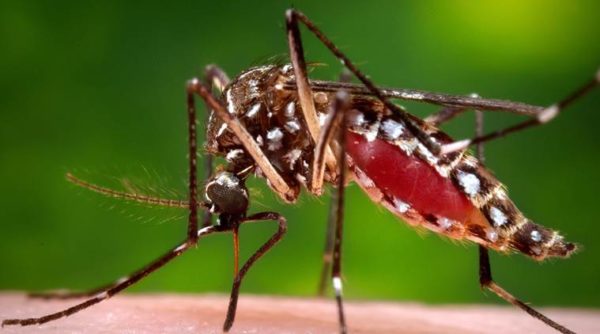Last year after the explosive spread of the Zika virus, several countries including India raised an alert to guard against the spread of the mosquito-born disease. Looks like enough precaution was not taken, as on May 26, World Health Organization (WHO) confirmed the first three cases of Zika virus in India – all of them from the Bapunagar area of Ahmedabad.
According to the WHO website, “On 15 May 2017, the Ministry of Health and Family Welfare-Government of India (MoHFW) reported three laboratory-confirmed cases of Zika virus disease in Bapunagar area, Ahmedabad District, Gujarat, State, India. The routine laboratory surveillance detected a laboratory-confirmed case of Zika virus disease through RT-PCR test at BJ Medical College, Ahmedabad, Gujarat. The etiology of this case has been further confirmed through a positive RT-PCR test and sequencing at the national reference laboratory, National Institute of Virology (NIV), Pune on 4 January 2017. Two additional cases, have then been identified through the Acute Febrile Illness (AFI) and the Antenatal clinic (ANC) surveillance.”
The first person found to be positive with the Zika virus is a 64-year-old male. The two other are a 34-year-old lady, who delivered a clinically well baby at BJMC and a 22-year-old pregnant female in her 37th week of pregnancy.
The Aedes Aegypti mosquito that carries the virus actually thrives in the country and is the same as the one that transmits dengue and chikungunya. It seems to operate like a heat-driven missile of disease. Scientists say the hotter it gets, the better the mosquito that carries Zika virus is at transmitting a variety of dangerous illnesses. National guidelines and action plan have been shared with the states to prevent an outbreak and containment of spread in case of any outbreak.
For those who travel extensively and are worried, get a basic blood test done with special focus on IgM antibodies. Here are other ways to stay safe:
* Prevent mosquito breeding around houses.
* Use mosquito repellents to protect yourself from mosquito bites, particularly between dawn and dusk..
* Non-essential travel to the affected countries should be deferred/cancelled, especially pregnant women.
* Women should avoid becoming pregnant while travelling in, and for 8 weeks after leaving an area with active ZIKV transmission or 8 weeks after last possible ZIKV exposure.
* All travellers to the affected countries/areas should strictly follow individual protective measures, especially during the day, to prevent mosquito bites (use of mosquito repellant cream, electronic mosquito repellants, use of bed nets, and dress that appropriately covers most of the body parts).
* Persons with co-morbid conditions (diabetes, hypertension, chronic respiratory illness, immunity disorders, etc.) should seek advice from the nearest health facility, prior to travel to an affected country.
* Travellers who complain of fever within two weeks of return from an affected country should report to the nearest health facility.






Leave a reply